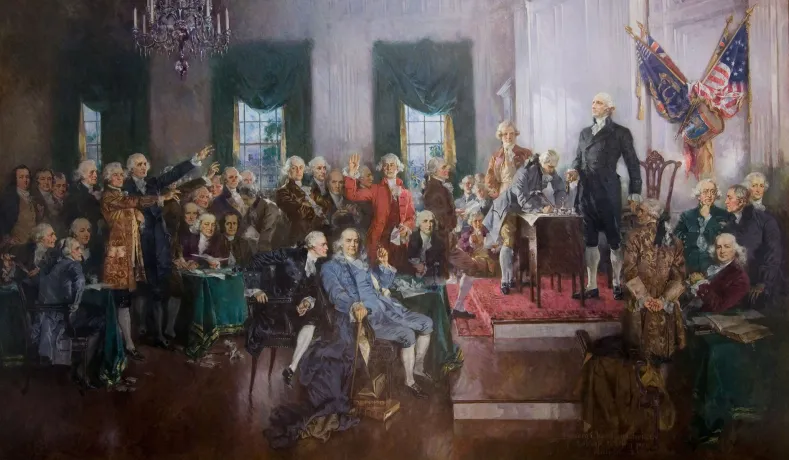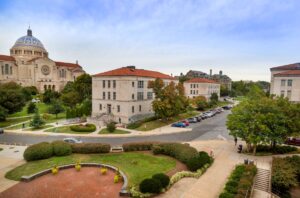Who is an Aristocrat Today?

Image courtesy of National Review
By Francesca Jonica
When I think of the word “aristocrat,” it evokes images of a life free from worry—of individuals who have the financial freedom to live without constantly thinking about meeting a budget or cutting corners. Aristocrats seem to inhabit a world where success is not just a fleeting achievement but a steady reality, built on wealth, influence, and often a touch of grandeur. But in today’s United States, where a historical aristocracy doesn’t exist, I wonder who fits this description? And what does it really mean to be an aristocrat in our modern context?
Aristocrats are traditionally defined by their inherited wealth, their land, and their social standing which were all passed down from generation to generation. They were the ones who never worried about the “bottom line” because their resources seemed limitless. Today, that definition feels outdated in a society that values ambition and innovation over birthright. An aristocrat in the modern world might not inherit wealth but instead create it. They might be a business owner who has not only achieved success but sustained it through vision and entrepreneurship—a person whose wealth doesn’t just secure their own life but also empowers them to influence others and shape industries.
But wealth alone doesn’t seem to be enough. An aristocrat, to me, is someone who transcends financial success to wield influence—whether that’s in their community, their profession, or even the broader world. It’s someone who has moved beyond survival to leave a mark, someone who can focus on creating change instead of worrying about daily struggles. Perhaps that’s why I sometimes think of politicians, artists, and even students as potential modern aristocrats. While their wealth might not always be monetary, their ideas, passions, and ambitions often shape the future in powerful ways.
To me, there’s also a deeply personal element to this reflection. I’ve spent time thinking about what it must feel like to live with that kind of freedom—not just financial, but freedom from worry. As someone who is still working toward their own goals, I think about how much easier life might feel if the stress of meeting obligations or staying within a tight budget wasn’t a constant companion. That’s what I imagine aristocracy to feel like—a sense of ease and possibility, where the focus isn’t on surviving but thriving.
Of course, this raises the question: can anyone become an aristocrat in America today? Our country was founded on the rejection of titles and inherited privilege, yet there’s still something undeniably compelling about the idea of rising to that level of success. Maybe the modern aristocrat is not defined by birthright but by the combination of drive, innovation, and the ability to inspire others. Whether they’re an entrepreneur building a legacy, a politician shaping policies, or even a student dreaming of their future impact, today’s aristocracy is fluid, evolving, and open to interpretation.
So, who do you believe qualifies as a modern aristocrat? Is it someone with wealth, power, or vision—or a mix of all three? Perhaps the answer lies in how we view success and influence in today’s world. As for me, I believe the modern aristocrat is anyone who has the means and the drive to rise above personal success and leave an enduring legacy for others.







